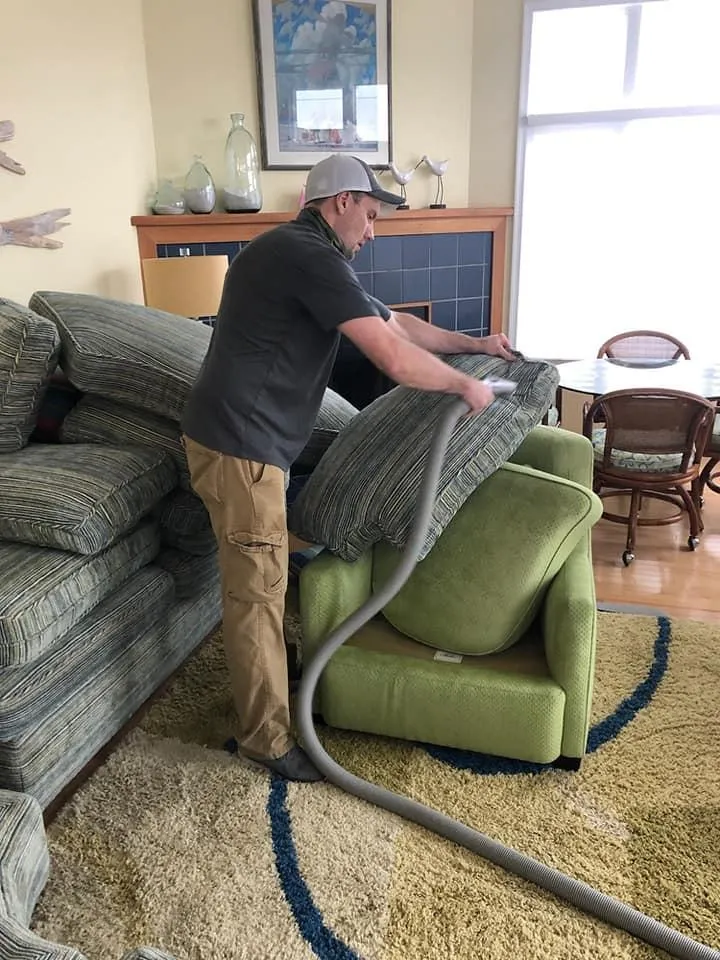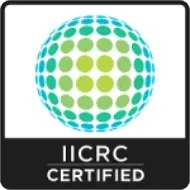Cape May County, NJ and Surrounding Areas
(609) 465-4700
Blog
Cape May County, NJ and Surrounding Areas

Carpet Still Smells After Cleaning? 8 Easy Solutions | Fix Now
You've spent time cleaning your carpet, hoping to enjoy that fresh, clean smell throughout your home. Instead, you're left wondering why unpleasant odors still linger. This common problem can be frustrating, especially after putting in the effort to clean thoroughly.
When carpets still smell after cleaning, it's usually because the cleaning process didn't completely remove the source of the odor, the carpet wasn't dried properly, or the odor has penetrated into deeper layers that surface cleaning can't reach. Understanding why this happens is the first step to solving the problem and finally getting your home smelling fresh again.
The good news is that you don't have to live with smelly carpets. With the right approach, even the most stubborn carpet odors can be eliminated. Let's explore why your carpet cleaning efforts might not be working and what you can do about it.
Incomplete Drying: The Hidden Culprit
One of the most common reasons carpets still smell after cleaning is that they haven't dried completely. Damp carpets create the perfect environment for:
Mold and mildew growth which produces musty odors
Bacteria development that can cause sour smells
Reactivation of old stains and their associated odors
Most DIY carpet cleaners don't extract enough water during the cleaning process. When carpets stay wet for more than 24 hours, these problems begin to develop.
Signs your carpet hasn't dried properly include:
A musty smell that gets stronger over time
Carpet that feels damp or cool to the touch
Increased humidity in the room
Water marks appearing on baseboards
Deep-Set Stains and Odor Sources
Surface cleaning often can't reach deep-set problems:
Old spills that have soaked through to the padding
Pet accidents that have penetrated below the carpet fibers
Food particles trapped deep in carpet fibers
Dust and dirt that has settled into the base of the carpet
These hidden contaminants continue releasing odors even after surface cleaning. What makes this tricky is that you might not even see these deep stains on the surface anymore, but their smells remain.
Improper Cleaning Methods and Products
Using the wrong cleaning approach can actually make odors worse:
Soap residue left behind by some cleaners attracts more dirt
Incorrect water temperature might not activate cleaners properly
Too much water can soak into padding and subfloor
Strong chemical cleaners may mask rather than remove odors
Many store-bought carpet cleaners leave behind sticky residue that collects dirt and eventually creates new smells.
8 Effective Solutions for Smelly Carpets
Thorough Drying Techniques
Getting your carpet completely dry is critical:
Use fans positioned to create air circulation across the carpet
Open windows if humidity is low outside
Run dehumidifiers to pull moisture from the air
Increase air conditioning to reduce humidity
Use a wet/dry vacuum for additional water extraction
For the best results, continue these drying methods for at least 24 hours after cleaning. Don't rush to put furniture back or walk on damp carpets, as this can trap moisture below.
Baking Soda: Nature's Odor Absorber
Baking soda is highly effective for neutralizing odors:
Make sure carpet is completely dry first
Sprinkle a generous layer of baking soda over the entire carpet
Work it into the fibers with a soft brush
Let it sit overnight or at least 8 hours
Vacuum thoroughly, making slow, overlapping passes
For stronger odors, add 10-20 drops of essential oil (like lavender or tea tree) to the baking soda before applying.
Vinegar Solutions for Persistent Smells
White vinegar cuts through many odors:
Mix equal parts white vinegar and warm water
Fill a spray bottle with the solution
Lightly mist the carpet (don't soak it)
Allow to air dry completely
Follow with baking soda treatment if needed
The vinegar smell will disappear as it dries, taking many other odors with it. This works especially well on pet odors and food smells.
Steam Cleaning: Going Deeper
When surface treatments aren't enough, steam cleaning can help:
Rent or purchase a steam cleaner with strong extraction
Use the minimum amount of cleaner recommended
Make slow, overlapping passes across the carpet
Follow with extra extraction passes using clean water only
Use fans to dry completely afterwards
The hot water and powerful suction can reach deeper into carpet fibers than regular cleaning methods.
Enzymatic Cleaners for Biological Odors
For pet accidents, food spills, and other organic messes:
Choose an enzymatic cleaner designed for carpets
Test in an inconspicuous area first
Apply according to package directions
Allow the full dwell time recommended
Blot, don't rub, and allow to dry completely
Enzymes actually break down the proteins in biological matter that cause odors, rather than just masking them.
Professional Deep Cleaning Options
When DIY methods fail, professional services offer:
Truck-mounted equipment with stronger extraction
Hot water extraction that reaches deeper into fibers
Professional-strength cleaning solutions
Specialized treatments for specific odor types
Professional cleaners also have the training to identify the source of stubborn odors and treat them appropriately.
Carpet Deodorizers and Refreshers
For maintenance between deep cleanings:
Choose carpet-specific products, not air fresheners
Look for products that neutralize rather than mask odors
Follow application instructions carefully
Vacuum thoroughly after treatment
Be cautious with commercial deodorizers, as some contain harsh chemicals that may affect pets or people with sensitivities.
Replacing Carpet Padding in Severe Cases
As a last resort for severe odors:
If odors persist after multiple cleaning attempts
When dealing with major pet accidents or water damage
If you detect mold or mildew smells that won't go away
In these cases, the padding beneath your carpet may need replacement, even if the carpet itself can be salvaged. This is usually a job for professionals.
Preventing Future Carpet Odors
Regular Maintenance Tips
Stop odors before they start:
Vacuum at least twice weekly in high-traffic areas
Remove shoes at the door to reduce dirt
Change your HVAC filter regularly
Schedule professional cleanings every 12-18 months
Keep pets groomed to minimize shedding and dander
Regular maintenance prevents dirt and oils from building up in your carpet, which can lead to odors over time.
Dealing with Spills Immediately
Quick action prevents lasting odors:
Blot (don't rub) spills as soon as they happen
Use clean, white cloths or paper towels
Work from the outside in to prevent spreading
Treat with appropriate cleaner for the specific spill
Rinse with clean water and blot dry
Having a carpet spot cleaner on hand can make this process even easier.
Managing Humidity Levels
Controlling moisture prevents mustiness:
Keep indoor humidity between 30-50%
Use dehumidifiers in damp basements
Fix any water leaks promptly
Ensure proper ventilation, especially in bathrooms
Consider waterproof carpet padding in moisture-prone areas
Maintaining proper humidity levels helps prevent mold and mildew growth that can cause carpet odors.
When to Call Professional Carpet Cleaners
Signs That DIY Methods Aren't Enough
Consider professional help when:
Odors persist after multiple cleaning attempts
You notice musty smells returning quickly after cleaning
There's a history of flooding or major spills
Your carpet has visible mold or mildew
You've tried multiple solutions with no improvement
Sometimes, the problem extends beyond what consumer-grade equipment and products can handle.
What to Look for in a Professional Service
Choose quality professionals by checking:
Certification from organizations like IICRC
Reviews and testimonials from other customers
Whether they pre-inspect before cleaning
If they offer specific odor treatment options
Guarantees or warranties on their work
Ask about their process for handling odors specifically, not just their standard cleaning procedure.
What to Expect from Professional Cleaning
A thorough professional service should include:
Pre-inspection and identification of problem areas
Pre-treatment of stains and high-traffic areas
Hot water extraction (steam cleaning)
Additional passes for stubborn areas
Application of deodorizers if needed
Air movers to speed drying time
Good professionals will explain what they're doing and why, especially when targeting specific odor problems.
Specialty Solutions for Specific Odors
Pet Odors and Stains
For our furry friends' messes:
Enzymatic cleaners are essential for breaking down urine
For old stains, hydrogen peroxide can help (test in hidden area first)
Consider a blacklight to find invisible pet stains
In severe cases, subfloor sealing may be necessary
Regular professional cleanings prevent buildup
Pet odors are among the most challenging because they can penetrate all layers of flooring.
Mildew and Musty Smells
Fight dampness and mold with:
Complete drying as the first priority
Vinegar solution spray to kill mold spores
Baking soda to absorb remaining odors
Dehumidifiers to prevent recurrence
Check for water leaks or high humidity sources
If you suspect actual mold growth, consult a professional, as some molds can cause health problems.
Food and Beverage Spills
For kitchen and dining area carpets:
Blot immediately with clean cloths
For protein stains (milk, eggs), use cold water
For tannin stains (coffee, wine), use warm water
Apply appropriate cleaners for specific spills
Follow with odor neutralizer
Food odors can be particularly stubborn because they contain proteins, oils, and sugars that attract bacteria.
Smoke and Cigarette Odors
Eliminate smoke smells with:
Vinegar and water solutions sprayed lightly
Baking soda treatments, possibly repeated several times
Commercial odor eliminators specifically for smoke
Steam cleaning with an added deodorizer
Fresh air circulation whenever possible
Smoke particles are tiny and can penetrate deep into carpet fibers, making these odors particularly challenging.
FAQs About Smelly Carpets After Cleaning
How long should carpet smell after cleaning? A slight damp smell is normal for 24-48 hours, but should disappear completely once dry. Any strong or unpleasant odors that persist suggest a problem.
Why does my carpet smell worse after cleaning? This usually indicates incomplete drying, soap residue left behind, or that the cleaning process has reactivated old, deep stains.
How can I speed up carpet drying time? Use fans, open windows if humidity is low outside, run air conditioning or dehumidifiers, and make extra water extraction passes.
Can I use Febreze on wet carpet? No. Apply any deodorizers only after the carpet is completely dry, otherwise you may trap moisture and cause mildew.
How do I know if mold is growing in my carpet? Watch for musty odors that intensify over time, discoloration, or allergic reactions like sneezing and itchy eyes when in the room.
Will carpet padding always need replacement after water damage? Not always, but padding is more absorbent than carpet and harder to dry completely. If odors persist after cleaning, the padding may be the source.
Conclusion
Lingering carpet odors after cleaning can be frustrating, but now you understand the likely causes and have multiple solutions at your disposal. Whether your carpet suffers from incomplete drying, deep-set stains, or improper cleaning methods, the techniques we've discussed can help restore freshness to your home.
For most minor odor issues, thorough drying followed by baking soda or vinegar treatments may be all you need. For more stubborn problems, especially those involving pet accidents, water damage, or smoke, professional intervention often provides the best results.
Remember that prevention is always easier than treatment. Regular maintenance, prompt attention to spills, and controlling humidity can keep your carpets smelling fresh between deep cleanings.
Don't live with carpet odors that detract from your home's comfort. Take action today using these proven solutions, and enjoy the clean, fresh-smelling carpets you deserve.
Ready for truly fresh, odor-free carpets? Trust the experts at Shore Carpet Care!
With over 35 years of experience serving New Jersey homes and businesses, Shore Carpet Care specializes in eliminating even the toughest carpet odors. Our professional team uses advanced equipment and specialized techniques to remove deep-set odors at their source—not just mask them.
From stubborn pet odors to musty smells and everything in between, we deliver results that last. Our powerful truck-mounted equipment extracts more water for faster drying times, and our specialized treatments target specific odor problems.
Fully licensed and insured, we guarantee our work and your satisfaction. Experience the Shore Carpet Care difference with cleaner, fresher, healthier carpets that stay that way longer.
Contact us today for carpet cleaning, upholstery cleaning, tile and grout cleaning, and water damage restoration services throughout New Jersey. Your fresh-smelling home is just a call away!
Cleaning Services
Contact Information
Phone: (609) 465-4700
Location: Swainton, New Jersey
Mon - Sat : 8:00AM - 5:00PM
Sun : Closed

Service Areas
© 2025 All Rights Reserved | Shore Carpet Care
